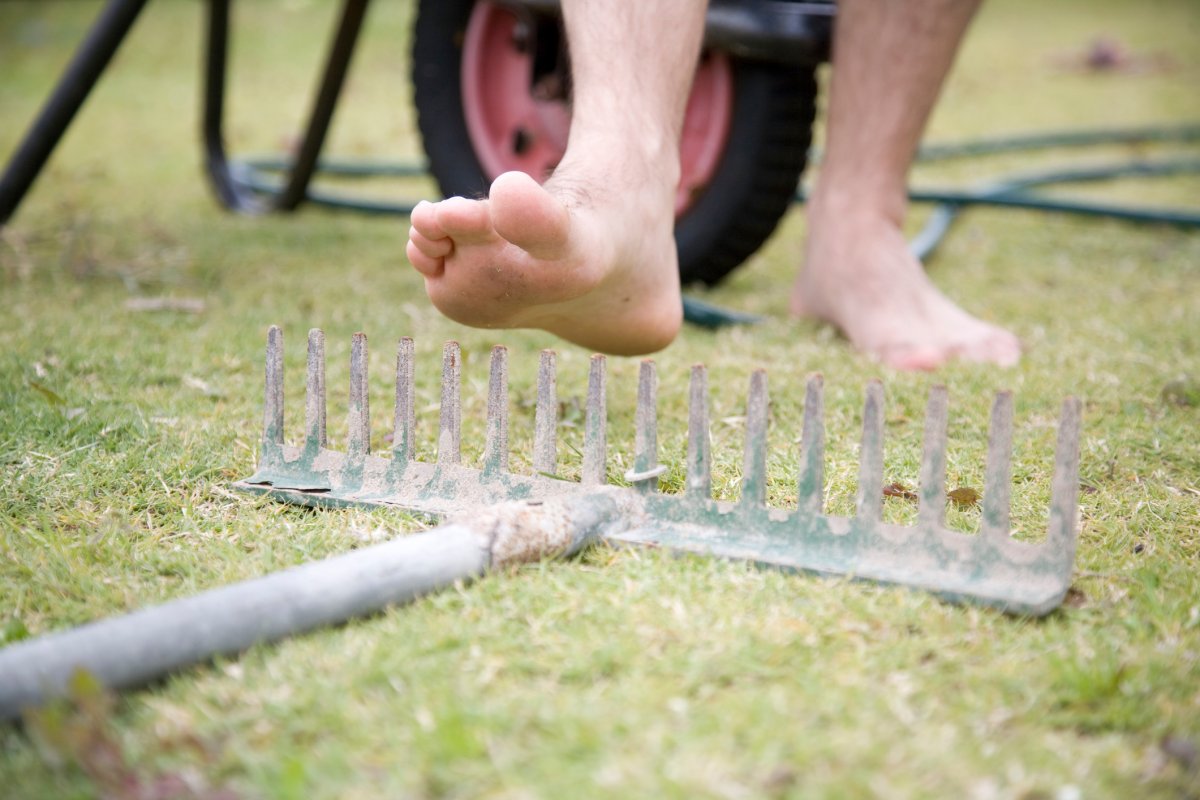

We may earn revenue from the products available on this page and participate in affiliate programs. Learn More ›
A Michigan State University article notes that “moderate-intensity level activity” such as gardening practiced for 2½ hours each week “can reduce the risk for obesity, high blood pressure, type 2 diabetes, osteoporosis, heart disease, stroke, depression, colon cancer and premature death.” Gardening also lowers anxiety in those who practice it, and provides nutritious fresh vegetables.
Time in the garden, however, can have negative effects on your health if you aren’t careful. The good news is that you can alleviate or eliminate most of these potential effects by covering up well and remembering the “moderate” part about exercise intensity.
1. A Blistering Attack: Blisters and Muscle Strain
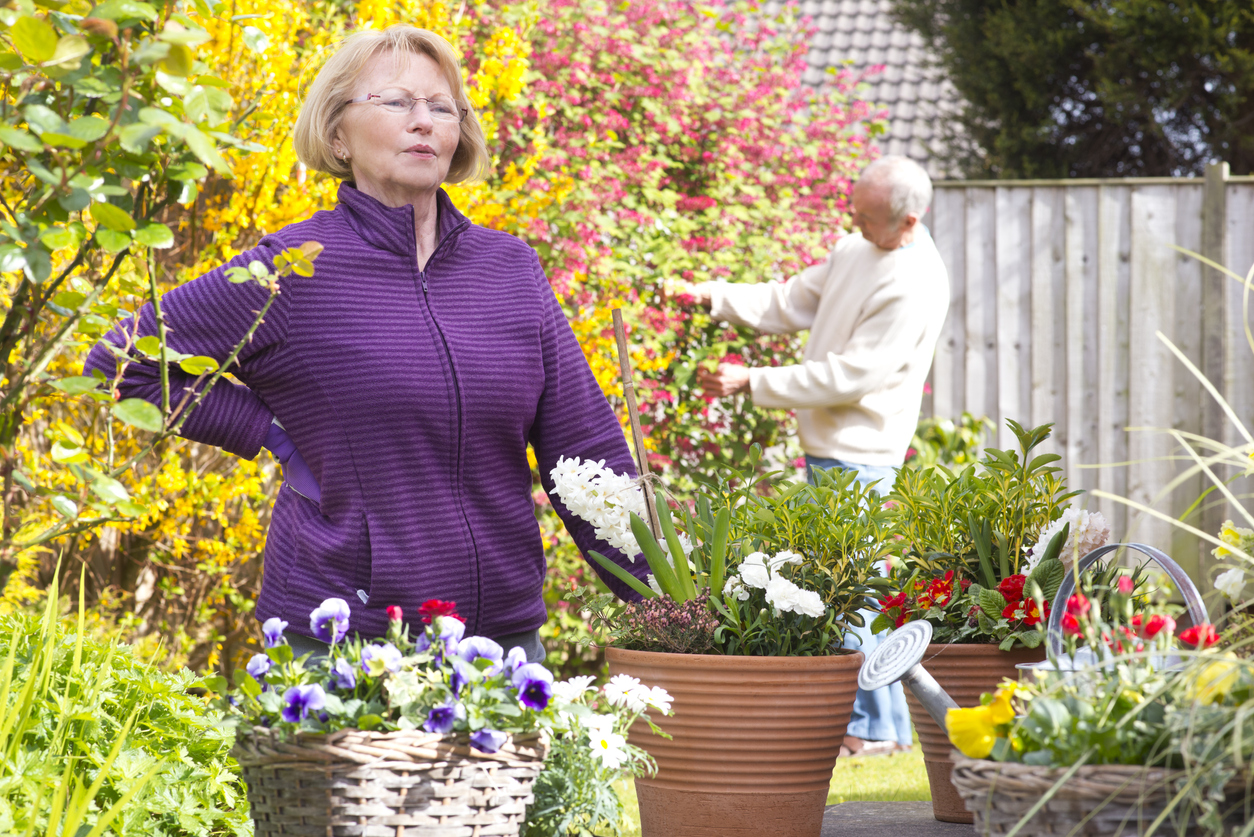
Once spring has sprung, you may be tempted to get in as much outdoor work as you can manage. Your winter-soft hands and muscles won’t thank you for that. Head out too early in the season and the ground may be too hard (or too wet) to be worked properly. Give yourself, and your soil, a break by gearing up for yard work gradually.
To prevent blisters, wear gloves and avoid doing the same job for extended periods of time. To forestall muscle aches, allow yourself to work for only short stretches at first and give yourself a break about every half hour.
2. Picking Your Poison: Rash and Itch-Inducing Ivies

Speaking of blisters, have you ever gotten the sinking feeling while weeding that you’re handling “leaves of three” that you are supposed to “let be?” That could portend a couple weeks of itching misery. To prevent rash from those 3-leaved plants, learn to identify poison ivy and poison oak so you can steer clear of them this season.
If your property is especially overrun with poisonous plants, it’s a good idea to wear long sleeves, long pants, gloves, and an ivy-blocking lotion when gardening. If your bare skin comes into contact with poison ivy or poison oak, wash the skin immediately with soap and water or rubbing alcohol.
3. Going Out in the Midday Sun: Sunburn and Melanoma
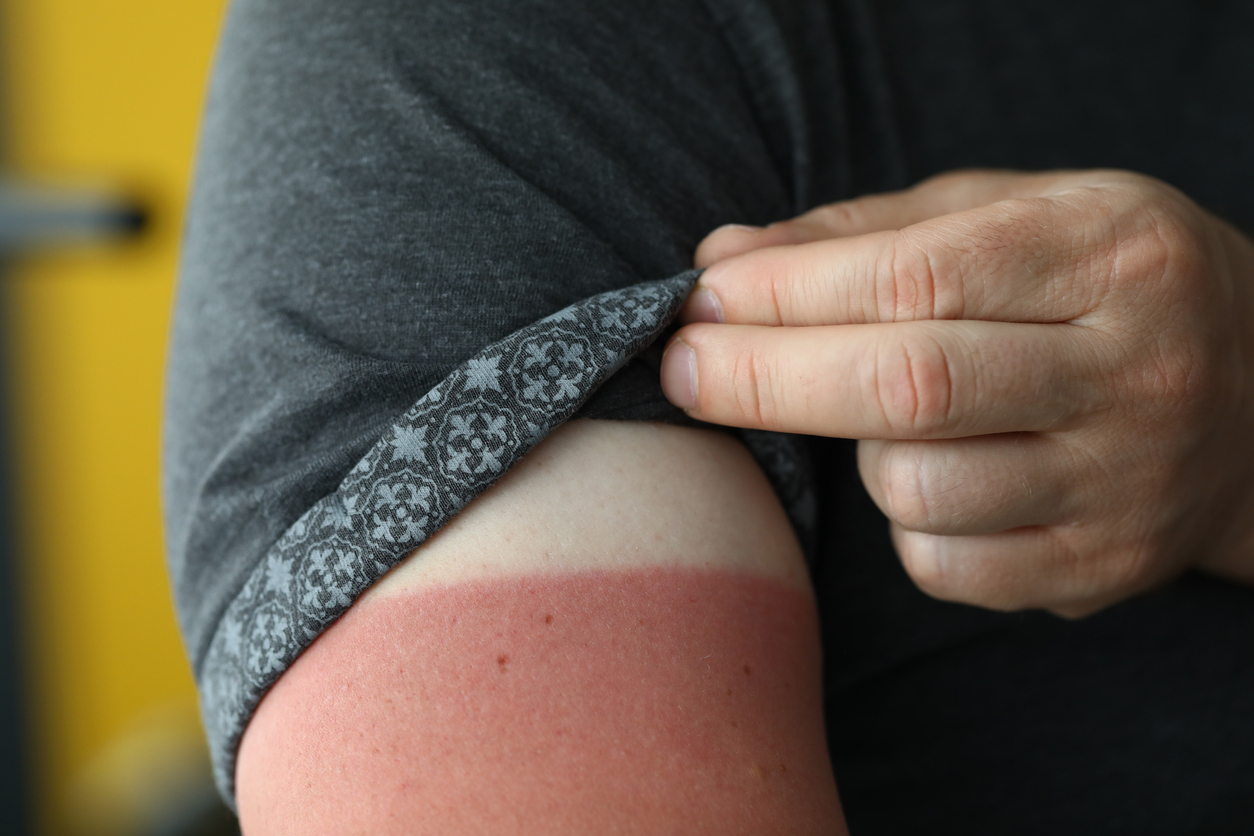
Ivy rashes aren’t the only gardening-related skin problems. A song by Englishman Noel Coward gibes that only “mad dogs and Englishmen go out in the midday sun,” but careless gardeners often do the same. The sunburn that may result doesn’t just hurt, it also increases your risk of contracting skin cancer. Those who live at higher altitudes are at more risk of intense UV effects.
Therefore, you have yet another reason to cover up well when gardening, by wearing a hat in addition to the clothes mentioned earlier. Applying a sports-type sunblock, which doesn’t wear off if you sweat, and staying out of the sun between 10 a.m. and 2 p.m. will protect you from the sun’s rays—and lower your risk of heat-related illnesses.
4. Nothing to Sneeze At: Allergic Reactions to Pollens and Molds
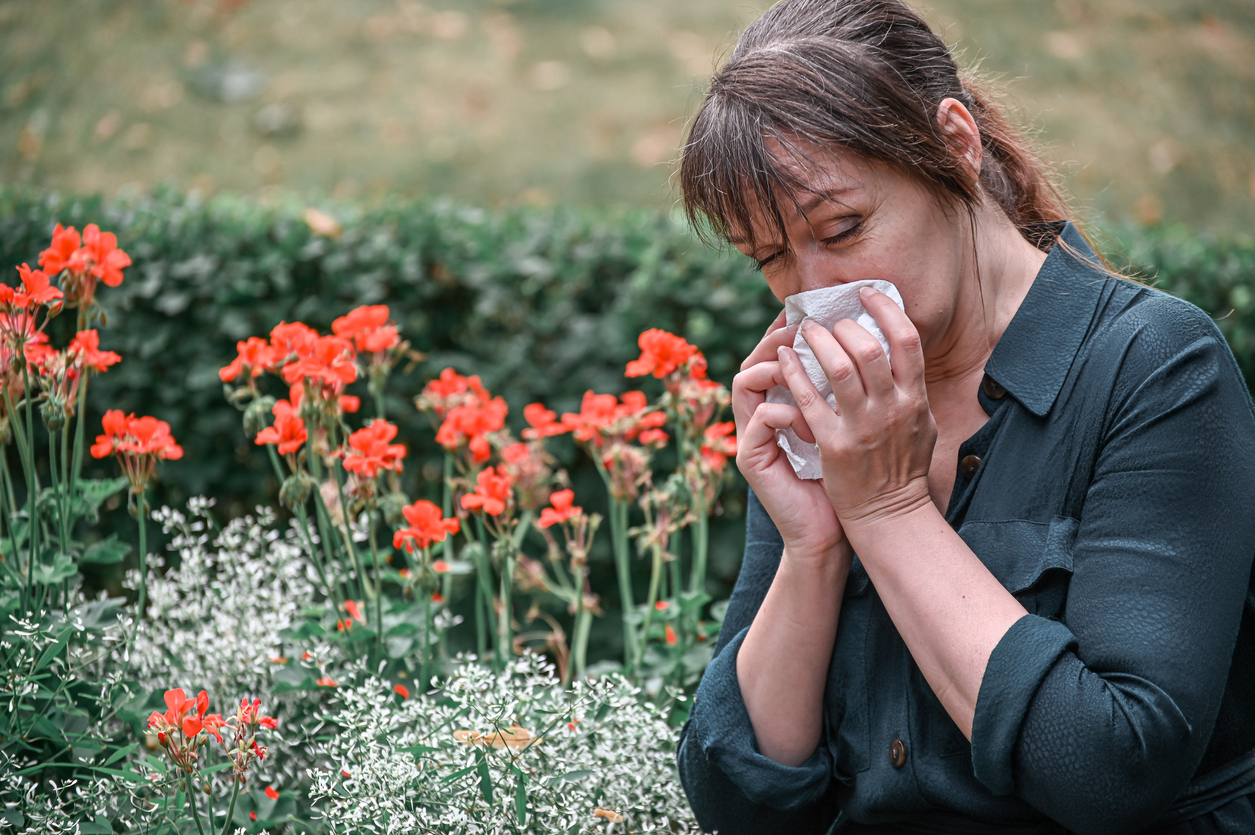
Allergies can also dictate when you should or shouldn’t garden. If you are sensitive to pollen, you might assume that you should avoid the showiest flowers. It’s actually the smaller blooms with finer pollen—such as those on trees and weeds—that most often provoke the sneezing and streaming eyes called hay fever.
To limit your exposure to allergens, stay indoors during spring afternoons, autumn mornings, and windy days. Also avoid using compost or bark mulches, which can harbor mold. (Gravel is a less sneeze-inducing mulch.) Take a shower and change clothes when you’re done gardening so the pollen doesn’t follow you indoors.
5. Dodging a Dust-Up: Inhalation of Bacteria like Legionella

Bagged potting soils, and composts often dry out before you purchase them, causing dust to rise up into your face when you open the bags. That could put you at risk for a rare but potentially fatal lung infection called legionellosis, which is caused by the inhalation of a bacterium called Legionella.
To prevent that, always wear a dust mask or respirator when opening a bag of soil and keep your face as far away from the opening as possible. Adding a little water to the dry soil while it still is in the bag and allowing it to soak up before you handle it will also cut down on the dust.
6. Cutting You Dead: Sepsis and Tetanus
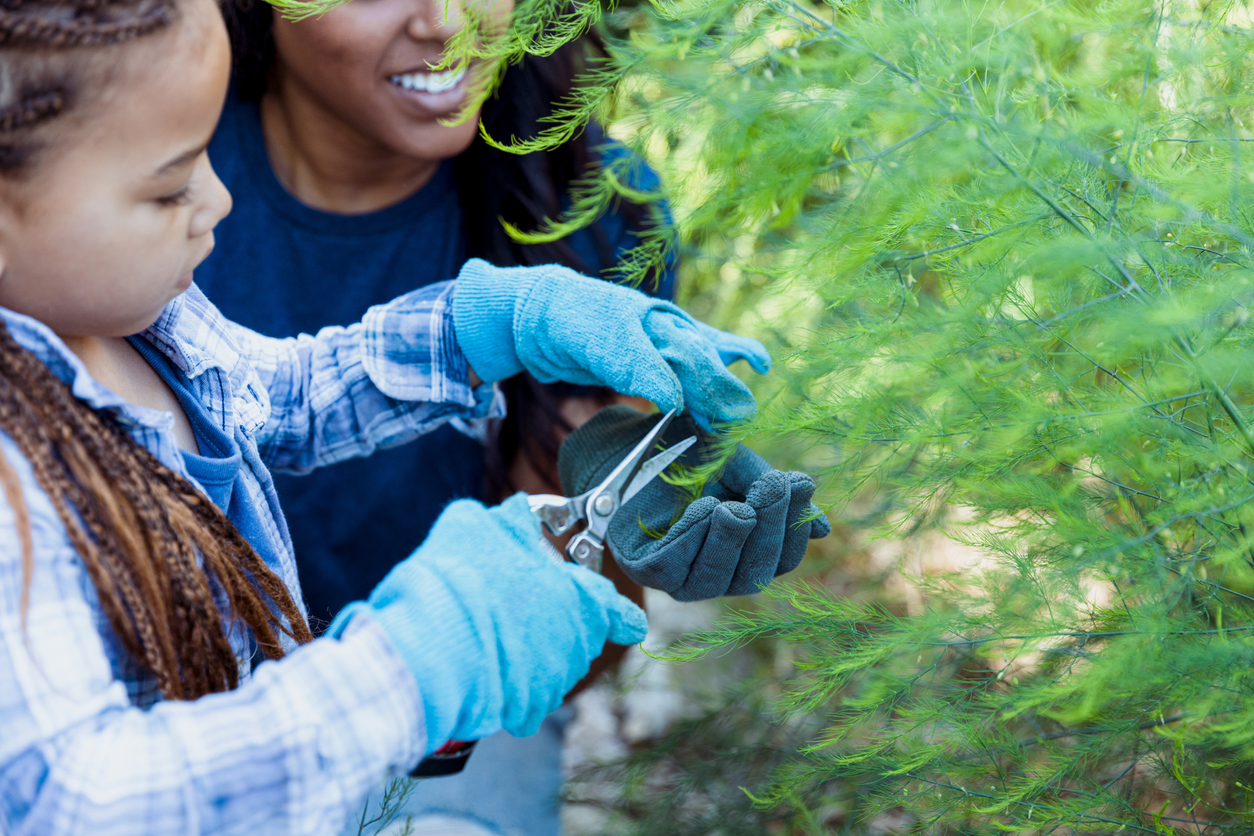
Sepsis and tetanus, diseases that are caused by bacterial infections, can also be fatal if not treated promptly. If you accidentally slash or puncture your skin while gardening, immediately wash out the wound with soap and water and apply an antibacterial salve to prevent infection.
Avid gardeners should also make sure that their tetanus vaccines are up to date. Although tetanus is uncommon these days due to the vaccine, sepsis is quite common. To prevent gashes while gardening, wear heavy gloves and coveralls when you need to prune thorny plants, and handle sharp tools with caution.
7. Blaming Your Tools: Injuries from Spades, Weed Trimmers, and Other Gardening Gear

Speaking of dangerous tools, gardeners encounter quite a few. Even a gardening shovel, left lying on the ground, can whack you with its handle if you absentmindedly step on its blade. For this reason, you’ll want to get into the habit of propping your long-handled tools upright rather than leaving them lying about underfoot.
Another good habit to adopt is to wear goggles or safety glasses when you are using weed trimmers to deflect any debris that is flung up. Even usually innocuous items can cause damage when hurled into your eyes.
8. A “Ticking” Time Bomb: Lyme Disease and Rocky Mountain Spotted Fever
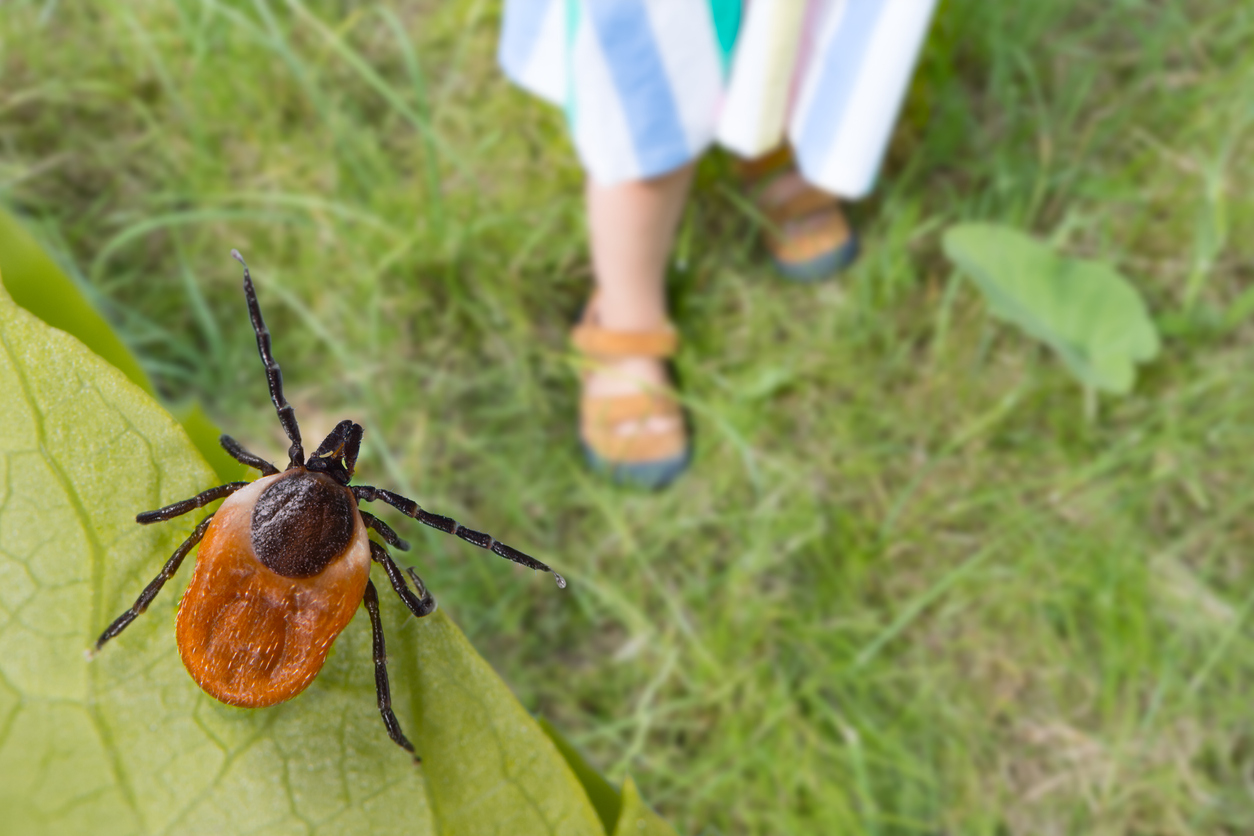
Another danger could be lurking in that tall grass you are whacking: ticks, such as the tiny deer tick, which carries Lyme disease. Although the larger dog tick doesn’t transmit Lyme disease it can convey other potentially serious ones, such as Rocky Mountain spotted fever.
At the risk of being monotonously repetitive, we’ll have to again remind you to wear long-sleeved shirts and long pants while gardening—preferably light-colored ones—and tuck your pant cuffs into your gardening shoes. Inspect your skin for ticks before you shower and use narrow-nosed tweezers to pluck out any you find.
9. Ratting Around: Leptospirosis and Salmonella from Rodents
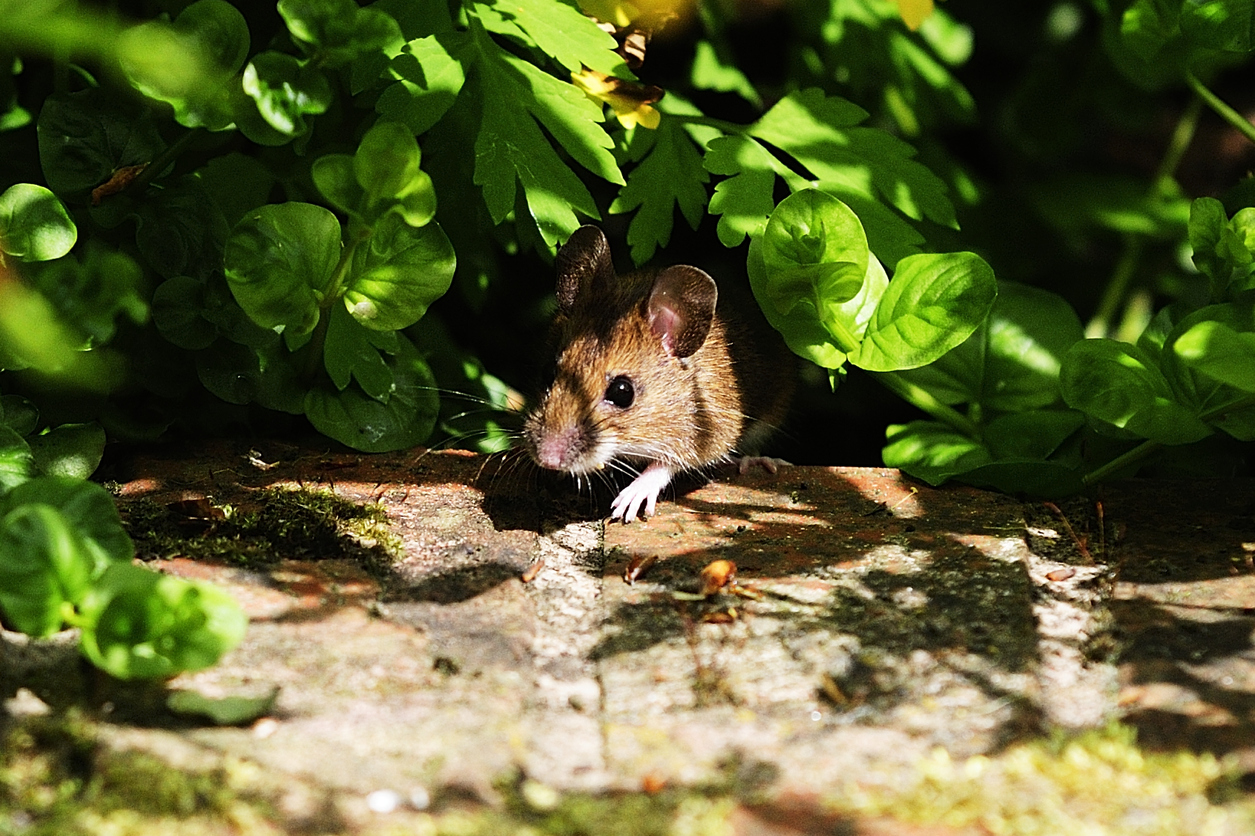
If your property is becoming overrun with rats due to the garbage you are adding to your compost, keep in mind that such rodents—and other animals—can spread a rare bacterial disease called leptospirosis through their urine. They also may transmit the more common salmonella bacteria through their feces.
To avoid attracting rats to your property, keep your garbage cans tightly capped and use an enclosed composting system such as a tumbler rather than an open pile. Also, wash your hands thoroughly if you come into contact with dead rats or their excrements.
10. Exerting Yourself: Heart Stress or Asthma Attacks
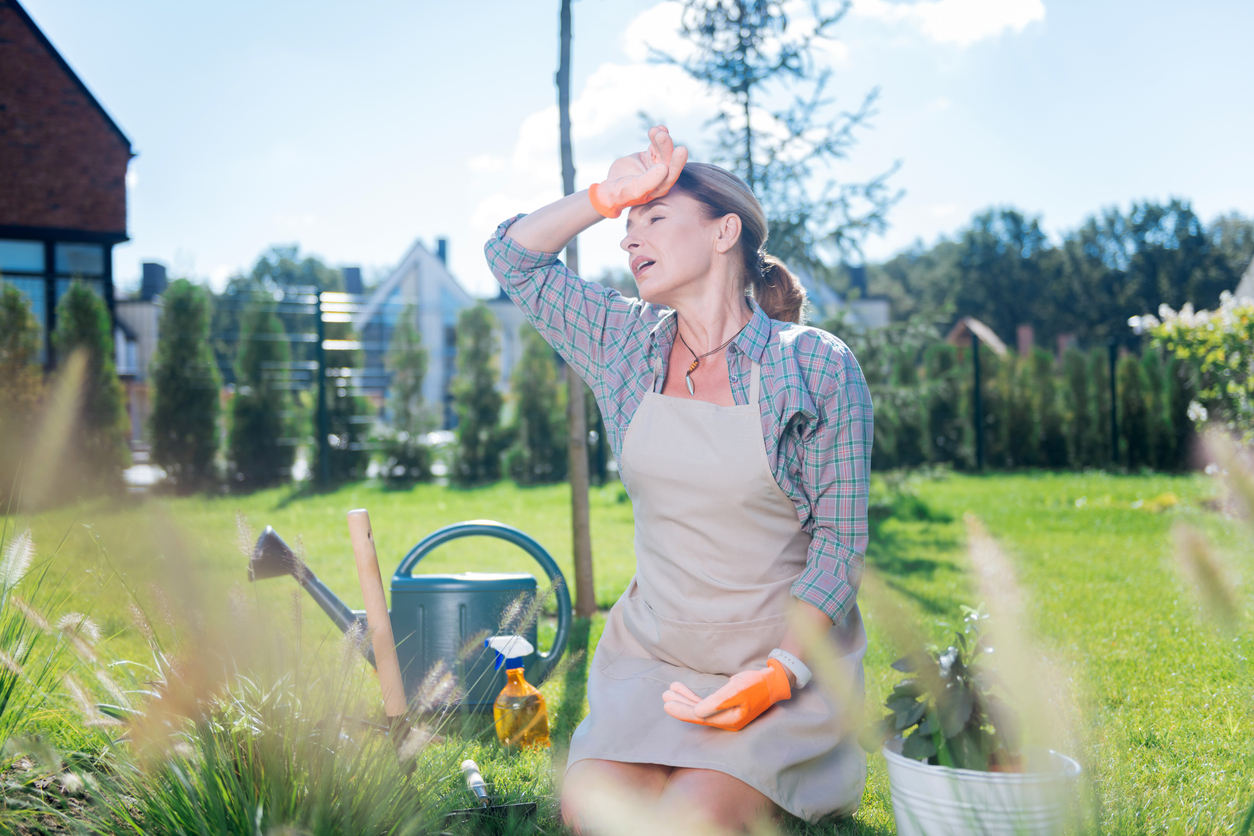
If you have serious heart or lung issues, overexerting yourself in the garden could cause more than minor symptoms. In fact, shoveling of heavy soil could give rise to some of the same emergencies generated by snow shoveling during winter: namely, heart or asthma attacks.
To prevent that, gardening in raised beds or patio boxes—which you can tend while in a standing or sitting position—is a good idea, because it requires less bending and kneeling than tending in-ground plots. Just get somebody else to fill those beds or boxes!
